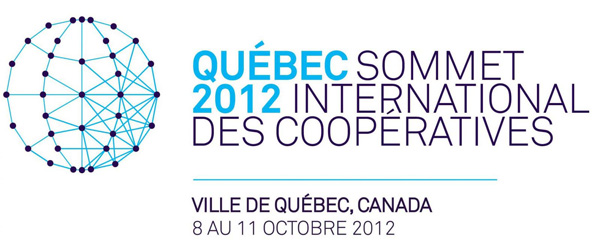Cooperatives have human values, their culture, like that of lean, is a source of performance. In this third article, I make you think about the links with the Web 2.0 and what we could call the coop-washing. Lean-washing refers to green-washing in the sustainable development world. Lean-washing is very well explained in this article by Florent Fouque (French only).
Show durable values
The values of cooperatives: democracy, self-help, respect for individuals, education,… are beautiful values. Co-ops often apply them more than they put them forward. In their daily choices, co-ops leaders make decisions based on the advice of all members. They respect the members, the clients and the employees. One of the weaknesses of co-ops is their inability to market or publicize these values.
The trend is great, for companies looking for a better image to put forward in their annual reports such values. In the same way that in recent years the “green” values are trendy. Many companies find all means possible to justify their reduced impact on the environment. The cooperative values, very close to the Web 2.0 also are hype and are put forward. But it is not enough to say it, we must make concrete gestures.
Take the example of public restrooms, here are the three types of “green” messages that I have had the opportunity to read in recent months:
- We respect environment and save the trees by offering you a high efficiency electric hand dryer
- To reduce our energy consumption and impact on the planet we invite you to use this recycled paper to dry your hands
- Out of respect for the planet, think that two sheets of paper are enough to dry your hands
Which of the three is a real gesture for the planet (if there is one)? A tree or Green Planet logo is present on all three messages.
Acting according to sustainable values, example of Web 2.0
For cooperative values (which are also that of lean), it is the same. Everyone can say that they are respectful of individuals, yet they must take action when the time comes. Web 2.0 is cooperative in nature. The functioning of the discussion forums, blogs, podcasts reiterates the values and principles of cooperatives.
Education and training are very present in all blogs, as on my own. The forums are the digital version of the old village assistance. Everyone brings their knowledge to help others progress or solve their issues. Finally, the functioning of these tools is democratic. To the extent that a blogger or a member of a forum can be rejected from the community. Especially if his or her way of being does not fit the values. It is surprising to see on the Web 2.0 the vocabulary of cooperatives, with the concept of member and community.
Operational excellence also having beautiful values does not escape this rule. So take the time to analyze the reports or presentations that are going to be made. Check whether the values displayed, the use that is made of the tools, the projects that are presented to you are made in respect of individuals, democracy, the planet (lean, cooperative, sustainable development). Or, if it is only a declaration of intent, without actual application.

At all times, keep your critical eye. See if the values are displayed or actually experienced by everyone in the organization

